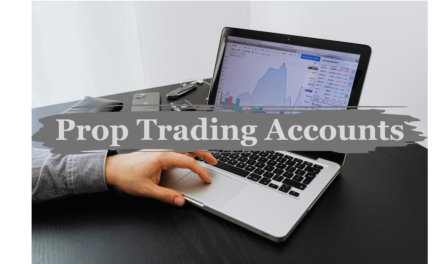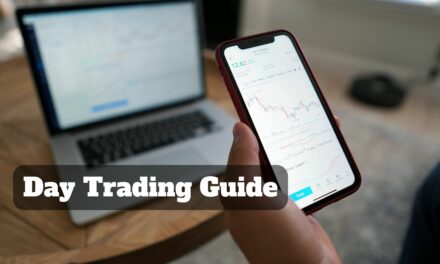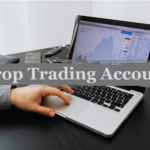Low startup cost online business
Have you ever considered Forex trading as a low startup-cost online business? Here we will explore how Forex trading, Day trading, and Prop trading can be an excellent startup business. It is best to have a low upfront investment for your startup venture, Prop trading can start with an upfront investment of as low as $100. Explore more in this article.
One of the most rewarding endeavors you can take part in is starting and managing your own business. To get the most out of your venture, it is best to look for a business that requires minimal startup capital yet offers a higher potential for return. The Internet, and more recently AI technologies, have created a plethora of chances to launch one’s own business even as a side job. We will learn in this article how day trading and prop trading can be a low-cost start-up business.
Recent years of uncertainty have caused an increase in the popularity of certain finance-related jobs, such as day trading. This is due to their potential for profit regardless of market fluctuation. This article will discuss the benefits of day trading and why establishing your own account may be a beneficial business venture.
Day Trading
Day trading is a type of investment strategy in which a trader buys and sells securities within the same day. This type of trading generally involves the use of technical analysis to determine when to buy and sell stocks. As well as the use of margin accounts to leverage the trader’s buying power. Day traders typically seek to profit from short-term price movements in stocks or other securities. Often leveraging their positions to maximize returns. Day trading can be risky. It requires a great deal of knowledge and research to make successful trades and to gauge the appropriate amount of risk. It is important for day traders to understand the risks associated with day trading and to have a sound trading plan.
Day trading can be a low-cost business as long as you are careful and smart about how you do it. Traders will start with a small amount of capital and build it up as their trading skills and knowledge increase. Additionally, the cost of software and hardware used for day trading can be kept relatively low. You don’t need to spend a lot of money on a fancy setup – a laptop, trading platform, and good internet connection is usually enough to get started. Day traders can access many online resources and forums for free to get advice and support.
Prop Trading
Also known as proprietary trading, is a form of trading in which traders use a firm’s capital to make trades rather than spend their own. Prop traders typically make decisions based on their own risk appetite and make their own trading decisions. They are usually independent and do not have to follow the same trading strategies as other traders. They can trade stocks, options, currencies, or any other financial instrument. Traders may also make decisions based on their own research or analysis. Prop trading can be very risky, but when done correctly, it can also be very profitable.
Prop trading can be a low-cost business for those looking to enter the stock market. It requires little initial investment, with minimal costs such as trading software and account fees. In addition, there is no need to hire staff, which can save even more money. Prop trading can be a great way for investors to gain experience and generate returns while avoiding excessive start-up costs.
The Benefits of Day Trading and Prop Trading
- One of the main advantages of day trading and prop trading as viable business options is their lower starting capital requirements. For as little as $500, it is possible to set up a trading account or even a trading floor.
- If you join a proprietary trading firm, the company will provide you with capital and buying power.
- If you are a stock trader with an international broker, you can start your day with Asian stocks followed by European and American equities. Day trading can work on a 24/7 basis allowing for great flexibility.
- You can let your traders work in shifts if you are running a trading floor. The forex market is open 24 hours five days a week and the crypto market is open 24/7. This allows you to make money all the time.
- As you gain more experience, you will likely become a better day trader and continue to grow your account over time. This means that, in most cases, trading will get better with time and you will have long-term growth.
- Unlike other businesses, trading does not have competition between different traders. Instead, most traders compete with themselves, striving to exceed their own previous performance.
How to Choose the Right Firm
- Consider Your Goals: Before you start searching for a day trading and prop trading firm, you should first consider your goals. Are you looking to trade on a full-time basis or are you just looking to trade part-time? Are you looking to trade on your own or do you want to trade as part of a team? Knowing what you want to achieve will help you narrow down your search for the right firm.
- Research Different Firms: Once you have identified your goals, you should start researching different firms to find the one that best suits your needs. You should look at their trading platforms, fees, and any other services they offer. You should also look at their past performance to get an idea of how successful they have been in the past.
- Speak to Current and Former Clients: Before making a final decision, it is important to speak to current and former clients of the day trading and prop trading firms you are considering. Ask them about their experiences and get a better understanding of what it is like to actually use the firm’s services.
- Choose the Right Firm: After researching different firms and speaking to former and current clients, you should be able to make an informed decision about which day trading and prop trading firm is right for you. Make sure you take your time with this decision and choose the one that best meets your needs.
Retail vs. Prop Trading Accounts
Opening a retail trading account is much simpler than other types of trading accounts. All you need to do is select a broker, open an account, and make a deposit. Once you’ve done that, you’re ready to start trading. Unlike other forms of trading, when you use your own money rather than the firm’s money, you have more freedom to choose what trades you can make and when. Prop trading accounts usually involve the capital of a brokerage firm or hedge fund. Trades made in these accounts are usually high-risk and involve derivatives or other complex financial products. Risk managers and the amount of money a firm has available both play a role in restricting trading activity.
Required Skills for Day and Prop Trading
The success of either prop trading or day trading will largely hinge upon your skill set, but the decision between the two should be based on factors such as capital, support, flexibility, risk tolerance, and career goals. Both trading strategies require a combination of particular skills, some of which are common to both.
Risk Management
It is essential to understand and be able to manage the risk associated with both types of trading. This includes setting stop losses and having the discipline to cut losses on an unfavorable trade.
Discipline
In order to be successful in trading, one must have a lot of discipline. It is important to create a plan and stay true to it, rather than making decisions based on whims or changes in the market.
Analytical Skills
It is critical to have excellent analytical abilities whether you are a day trader or a prop trader. You need to be able to analyze a large quantity of data quickly to determine potential profits. To do this, you must stay updated on financial news, recognize patterns in the market, and accurately analyze charts and graphs.
Knowledge of Financial Markets
In order to successfully utilize either trading style, a comprehensive knowledge of the financial markets is necessary. This includes being aware of different types of assets, market indicators, economic influences on the markets, and any geopolitical events that may affect them.
Emotional Control
The financial markets can be an unpredictable ride, with frequent ups and downs. It is essential to keep your emotions in check when making decisions in order to be successful. Both day traders and professional traders must remain level-headed, even in times of major financial losses.
Tech Savviness
Today, trading heavily depends on technology. To be successful, you have to be able to navigate trading platforms, algorithms, and even high-frequency trading if you’re a proprietary trader. Day traders need to use technology for research and executing trades.
No matter which trading method you pick, it is vital to constantly learn, adjust, and enhance your abilities. Joining training programs, mentorships, or online courses could be advantageous to perfect your skills and keep up with market trends. This is a path that demands dedication and commitment, but with the right attitude, it can be very rewarding.
Are Day Trading and Prop Trading Legitimate Investments?
Yes, day trading and prop trading are both legitimate investments. However, both day trading and prop trading involve significant risk and require a high level of skill and discipline in order to be successful. As with any investment, it is important to understand the risks and rewards involved before making any decisions.
Conclusion
In conclusion, day trading and prop trading can be lucrative and rewarding businesses when done correctly. Both require knowledge of the markets, risk management strategy, and dedication to become profitable. While they both involve the same basic concepts of buying and selling stocks, they have different levels of risk and require different approaches. Prop trading is typically more suitable for those who have experience trading and have capital to invest, while day trading can be done with a smaller capital base and is generally more suitable for those who are just starting out. Regardless of which option you choose, it is important to do your research, understand the risks, and be prepared to invest time and effort to become successful.







